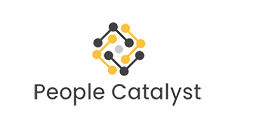
Gone are the days of rigid and hierarchical workplace cultures, as businesses are transforming to dynamic structures that encourage diverse and collaborative work environments.
A greater focus on diversity, an inclusive culture, and advances in human resource management and technology have facilitated this welcoming transformation.
It is critical that every business understand how the office culture has changed and needs to acclimate to it. Every business has to quickly derive valuable insights from today’s changing work culture scenario if it needs to succeed.
Until recently, workplace culture followed a top-down structure where all decisions were made by the top-level management, and employees had to follow the path.
Limited inputs were welcomed from the bottom-level employees, resulting in a sense of being left out among employees, also restricting creativity and innovation.
Things have changed for the better as contemporary businesses are keen on encouraging open communications and employee engagement.
HRM plays a critical role in promoting a collaborative workplace culture that encourages employee feedback. It also enables recognition of employee achievements, creating an inclusive workplace culture allowing employees to share ideas and take valuable initiatives that will contribute to the company’s growth.
A major change that has occurred in today’s work environment is the diverse nature of the workforce. It has become the need of the hour for companies to realize that a diverse work environment can help foster innovation and quicker decision-making.
Employees from different backgrounds and experiences, when working together, can bring in unique perspectives that can contribute to the business growth.
The role of Human Resource Management can be a game changer as it can promote diversity initiatives, ensuring equal opportunities, and building a more inclusive company culture.
This is a digital age, and like in many other fields, it has transformed how we work and interact with our workforce.
There is a global shift from the regular office work culture to that of work-from-home and hybrid work environments. Recently, employees want “WFM-Work from Mountains” over “WFH-Work from Home” to take off to the beautiful locales of the high mountains and work from there.
Many digital tools for remote work, virtual collaboration, and other digital mediums of communication have reshaped our office culture. This change has only helped companies for good as it has given businesses access to a global talent pool.
The challenge for businesses is to maintain a clear and stable communication channel with the team.
Human resources have to play a key part in enabling it via virtual team-building exercises and regular check-ins and ensure that the teams are well-motivated and reflect the company’s core mission and values.
Employee Well-being: Businesses must prioritize employee well-being, as a healthy work-life balance leads to higher productivity and job satisfaction.
Fostering Open Communication: Building positive and transparent communication not only creates trust but also empowers employees to convey their ideas. A regular feedback session for employees to speak out their concerns is essential.
Employee Development is the Key: Training is of utmost importance if you require a well-equipped task force. Ongoing training will provide employees with professional growth opportunities, making them feel invested.
Rewards for contributions: There is nothing like rewarding an employee for their achievements, thereby boosting their morale. It not only cultivates positive behavior but also infuses a sense of pride and belonging.
If you need success in business, a professionally driven and motivated team is the key to it. A good team can be built only when the team is taken care of both professionally and economically.
Businesses must view workplace culture as a continuous process that needs to be monitored and tweaked constantly according to the changing times.
It is Human Resource Management that needs to proactively assess employee needs, understand the changing demands, and help businesses adapt to changing trends.
A strong company culture is a competitive advantage, and businesses should prioritise improving workplace culture as much as possible to attract top and fresh talent.

If you have any questions or would like to discuss our services further, simply leave us a message, and we shall be delighted to give you a call back at your convenience.

People Catalyst works towards unlocking the full potential of people within the workplace through strategic and catalytic HR solutions.
HB-84, 1st Floor, 4th Cross Road, Panampilly Nagar, Kochi – 682036
Email : info@peoplecatalyst.net.in
©2025 People Catalyst. All rights reserved
Site Designed & Developed by Aspensoft Technologies